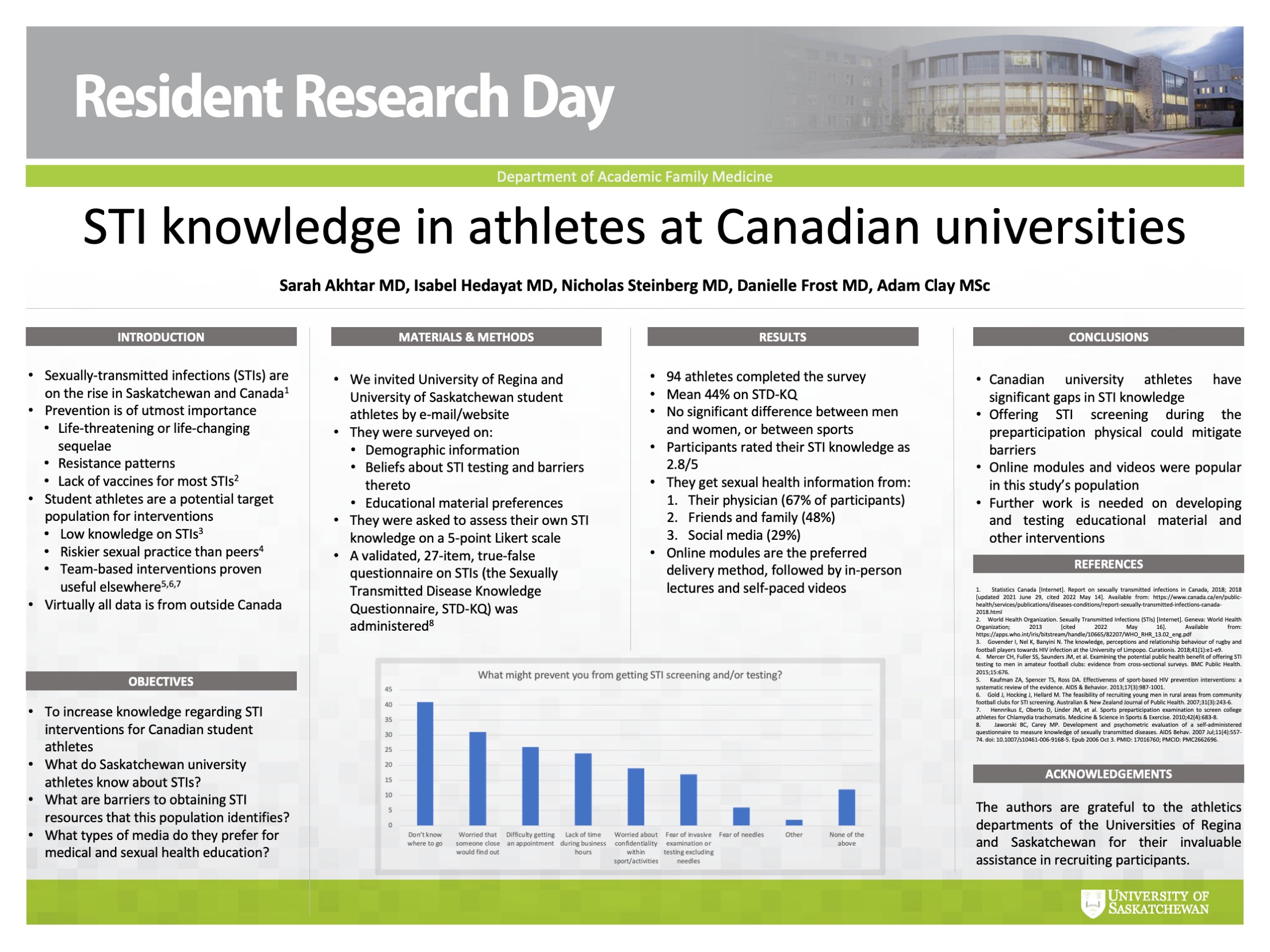
A2.7: STI knowledge in athletes at Canadian universities
Nicholas Steinberg, Sarah Akhtar, Isabel Hedayat, Danielle Frost, Adam Clay
Background: Studies from other countries suggest that college athletes engage in riskier sexual behaviors than their peers, and have limited understanding of sexual health. This makes them good potential candidates for educational intervention for sexually transmitted infection (STI) prevention. Our study investigated STI knowledge of Saskatchewan college athletes and their preferred sources of information for STI education.
Methods: A cross-sectional survey was distributed virtually to athletes at Saskatchewan universities. Participants subjectively rated their level of STI knowledge, then completed a validated questionnaire on basic STI knowledge. Participants were asked where they receive their sexual health information from, their preferred format for STI information delivery, and on their attitudes and beliefs relating to STI testing.
Results: 94 participants completed the survey (59% Female) representing 8 sports. Participants had a median composite self-reported STI knowledge score of 2.8 out of 5 (inter-quartile range [IQR] 2.4-3.6). The median participant scored 12 out of 27 (44%) on the knowledge questionnaire (IQR: 8-17). The three most popular media for health education were online modules (34%), in-person lectures/conferences (24%) and self-paced videos (20%). Athletes identified barriers to STI testing, including embarrassment (61%) and not knowing where to go for testing (41%).
Conclusions: Saskatchewan college athletes have marked limitations in their STI knowledge. STI education using online modules may be an effective public health measure to reduce STI transmission. Pre-season physical examinations may provide an opportunity to offer low-barrier STI screening. Developing educational materials and integrating STI screening into routine care for college athletes are potential avenues for future research..
